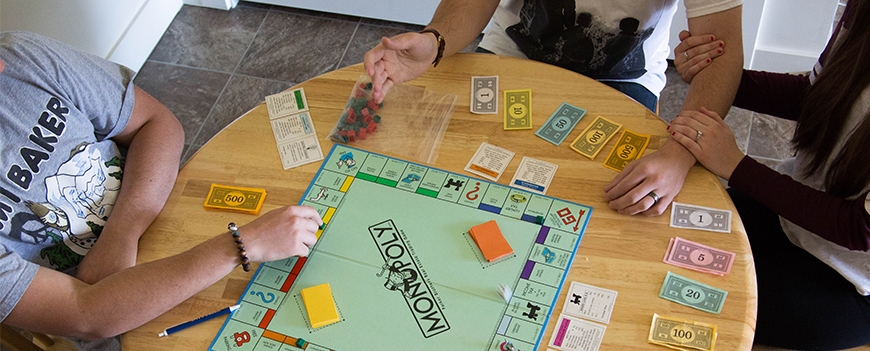Boyfriends and boundaries: Students define the lines between having friends of the opposite sex while in relationships
When in a relationship, crossing the “line” with a friend of the opposite sex can be catastrophic, leading to loss of trust or, worse, loss of the relationship.
The definition of this “line” varies from relationship to relationship.
Sarah Hyatt, a sophomore majoring in management information systems, said she is often in group projects with only herself and a man who is not her husband.
Being one of the few women in the MIS major, Hyatt gets paired one-on-one with a guy often.
She described these situations as awkward, especially with her husband jokingly yelling, “Don’t get kissed,” as she walks out the door.
“I’ll get assigned to work just me and another guy, and it’s like, it shouldn’t be weird, but it almost is weird just because I’m married, and if that guy’s not, it’s awkward,” Hyatt said.
In her relationship, the line never really needed to be discussed Hyatt said because, other than in group projects, she and her husband avoid any potentially-inappropriate situations by having friends that are married couples.
Josh Kapp, a junior majoring in mechanical engineering, said he and his wife have also made staying clear of the line easy, simply due to the trust they share.
“It’s not something my wife and I talk about. It’s more of something (where) we have a mutual trust that the other person is going to hold to that,” Kapp said. “For example, I probably wouldn’t study in a closed room with somebody else unless there was a third person, just out of respect.”
Kapp also makes the point that most people know where the line is, and because of that mutual respect in a relationship, the line isn’t crossed, referring to the Jiminy Cricket, or conscience telling someone the “line” is getting closer.
Debra Macleod, a couples’ mediator and relationship author expert, reinforces Kapp’s idea. She gave this scenario:
“I know my wife is always texting or on Facebook with her personal trainer. Now she locks her cell phone and has changed her online passwords. If I ask her who she’s talking to, she freaks out and says I’m being paranoid, jealous and controlling.”
Macleod then said, “…the spouse (in above scenario) who is having the opposite-sex friendship knows full-well that the behaviour is as shady as hell. But instead of respecting their spouse’s feelings, they continue to indulge in the ego-boost or thrill of it all.”
Gary Moore, a senior studying professional and technical writing, faced a different kind of “line” in his first marriage.
The “line” for him constricted him to the point where he changed how he interacted with people. Moore said he couldn’t have conversations with other women without his first wife feeling threatened.
“As a consequence, I actually became very introverted,” Moore said. “I wouldn’t talk to anyone. It was easier for me to say, ‘Alright, I’ll just not talk to anyone.'”
Though Moore’s “line” was potentially difficult, he said he respected it.
“Even if the person is insecure, and you don’t feel (their boundaries are) valid, you still have to respect it,” he said.
Carolyn Lyle, a freshman majoring in English education, had to redefine the line from her previous relationship to what it meant with the person she is currently dating.
Lyle said she is in a serious relationship right now with a guy who is sensitive to who she hangs out with and who she texts.
In her previous relationship though, when she had guy friends and interacted with them, it was never a problem.
For Lyle, the line changed when her partner changed.
Moore said respecting spouses and partners is important.
“Always act as if your spouse is right there with you,” Moore said. “If you would not feel comfortable with your spouse there, regarding your conversation, behavior or anything like that, then don’t do it. Flat out.”
— whitlewis7@gmail.com

